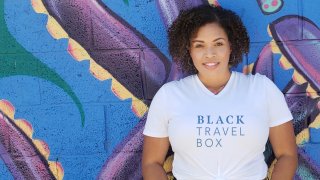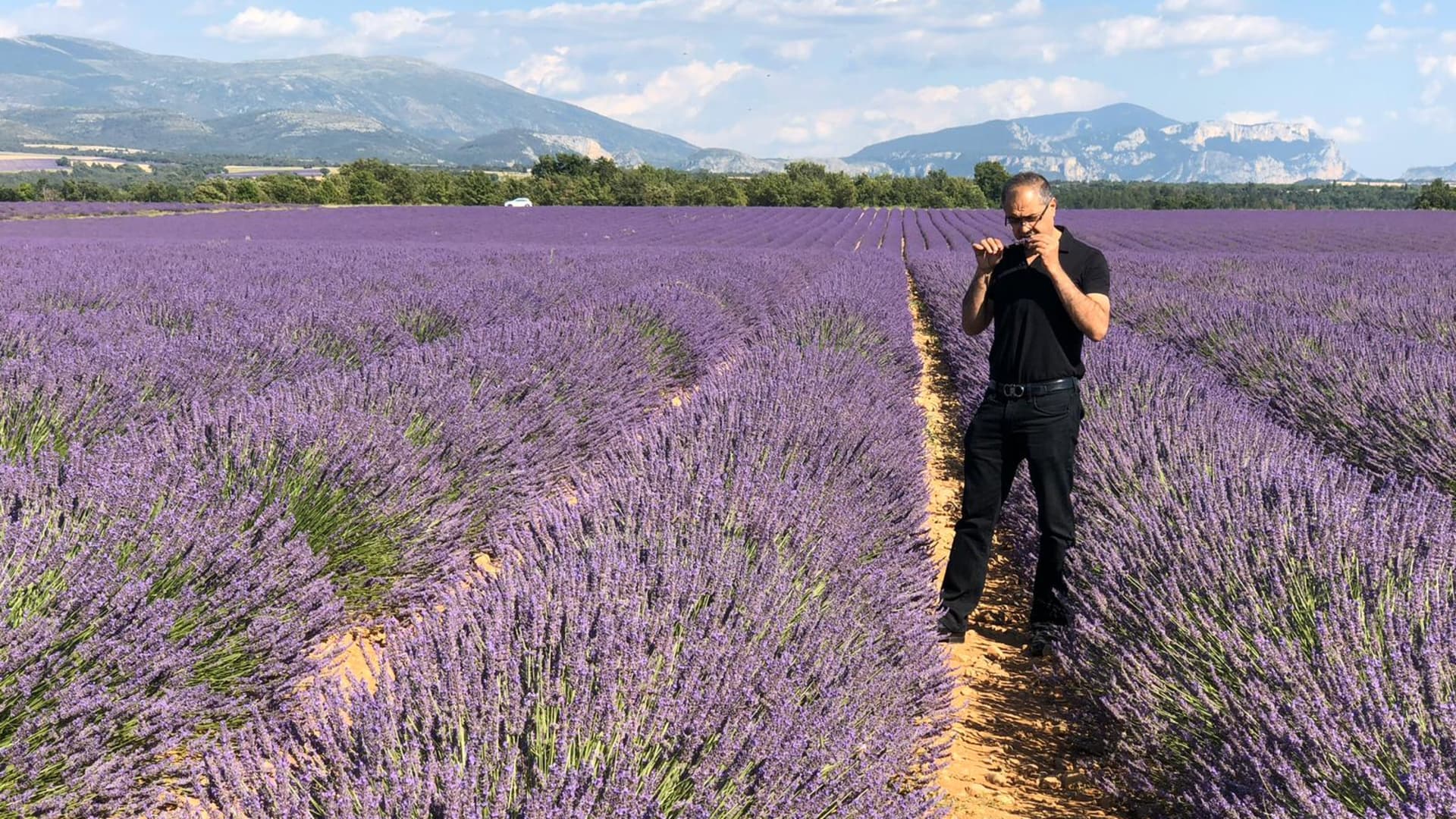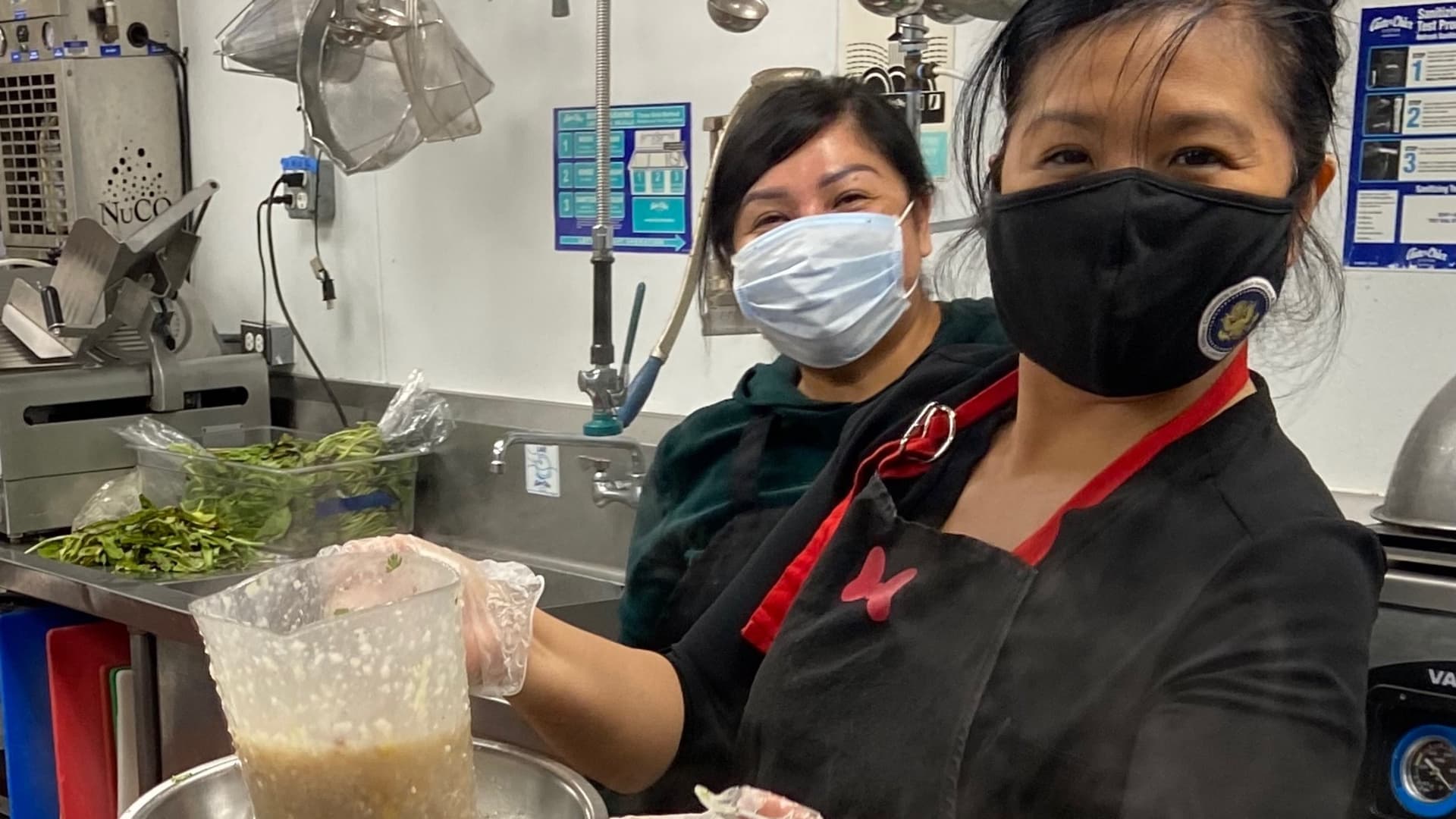
When the Covid pandemic hit, small business owners across the country scrambled to stay afloat.
Those who managed to stay open were the fortunate ones. As of May 5, the number of U.S. small businesses that are open decreased by 33.8% compared to January 2020, according to Opportunity Insights, a Harvard-based economic tracker.
WATCH ANYTIME FOR FREE
Stream NBC10 Boston news for free, 24/7, wherever you are. |
Here's how four businesses pivoted in order to survive during the pandemic.
Lovely Leaps
Get updates on what's happening in Boston to your inbox. Sign up for our News Headlines newsletter.

When schools shut down in California's San Diego County last March, so did most of Lisa McCabe's business at her dance studio, Lovely Leaps. About 90% of her classes took place at area preschools. Then, the building where she conducted her in-studio classes also permanently shuttered.
McCabe, 32, immediately started networking and landed a gig teaching mommy-and-me virtual classes. She also began hosting virtual free dance classes for kids 10 months to 3 years old every week. Yet she needed to make money. So in June, she started a paid class for the 6-to-10 age group.
Money Report
"Realizing early on what the customer wants with virtual [dance] really helped us excel," McCabe said.
More from Invest in You:
'Top Chef' Shirley Chung pivoted her business, became a voice for Asians
Lack of workers is hurting small businesses' ability to keep up with demand
'Huge' opportunities await women entrepreneurs, venture capitalist says
It also helped that she networked with local organizations, offered free classes and formed partnerships.
"Our virtual classes took off like a rocket," McCabe recalled.
By the end of July, she had 2,000 virtual paying students. In October, she opened up a new studio location.
"It has been bumpy, but it is all moving in the right direction," McCabe said.
Guru Nanda

Puneet Nanda saw an opportunity when the crisis unfolded. He quickly pivoted his essential oils and accessory company, Buena Park, California-based Guru Nada, to manufacturing essential oil-based hand sanitizer and masks.
By July, when people were firmly entrenched in their home offices, he saw his essential oils and diffusers take off.
"A lot of people would not use it when they are working from an office," explained Nanda, 53, who walked away from his first business, the oral-care company Dr. Fresh, after a health scare. He returned to practicing yoga and aromatherapy, which led to his latest venture.
"From their home office, they want some relief from their kids and their husbands and they probably want to be in their zone."
The past year wasn't always smooth sailing, however. Nanda worried about his employees and his business. In early March 2020, the Food and Drug Administration issued a warning to his company, as well as several others, to stop selling products that claim to cure or prevent the coronavirus.
Guru Nanda immediately removed any information related to treatment or prevention of Covid-19 and the coronavirus, the company said in a statement at the time. It promised to be compliant and work with the FDA.
Golden Catalyst

Being an event planner and a restaurant owner in Las Vegas during the pandemic meant 49-year-old Jan-Ie Low had to make some fast decisions.
While her restaurant was shuttered, she concentrated on using her event planning business, Golden Catalyst, to consult with Asian-American businesses on how to navigate available aid, like the Paycheck Protection Program.
She also turned to producing virtual events, like the 10th annual Chinese New Year in the Desert. The weekend-long event typically included sit-down dinners and celebrations.
"We became creative," Low said. "It is easy for us to say, 'No, we can't do it.' But we twisted and modified it and made it into a production instead."
She's since been hired to produce a virtual Japanese celebration, the annual Obon Festival, this August.
"We are about at 50% with event planning, but I'm not complaining," Low said.
Black Travel Box
For Orion Brown, 2020 was supposed to be the big launch of her brand, Black Travel Box. The 39-year-old started the business in 2017 to address the personal care needs of Black women travelers, but she had been mostly testing products on the market.
The first thing she did was launch a Covid-19 relief kit, which was her body balm and lip balm. She also had travel candles in the pipeline and decided to make larger ones for the home, sticking with the travel theme with names like Harlem Speakeasy, London Fog and Riviera Bordeaux.
"It was a hard few weeks of trying, 'what does what does a good pivot look like for a business like this, that's still getting off the ground?'" Brown said.
In the end, she made a conscious choice not to stray too far from her brand.
Brown is also upping her entrepreneurial game. She was awarded a $1,000 grant last September from personal care brand Caress' Dreams to Reality Fund and got a $1,500 annual membership to IFundWomen to help crowdfund her business. In April, she joined The Workshop at Macy's, the department store chain's women-owned vendor development program.
"I'm really excited and very, very optimistic for where things will go," Brown said.
SIGN UP: Money 101 is an 8-week learning course to financial freedom, delivered weekly to your inbox.
CHECK OUT: Self-made millionaire: If your goal is to be financially independent, ask yourself 4 questions via Grow with Acorns+CNBC via Grow with Acorns+CNBC.
Disclosure: NBCUniversal and Comcast Ventures are investors in Acorns.






